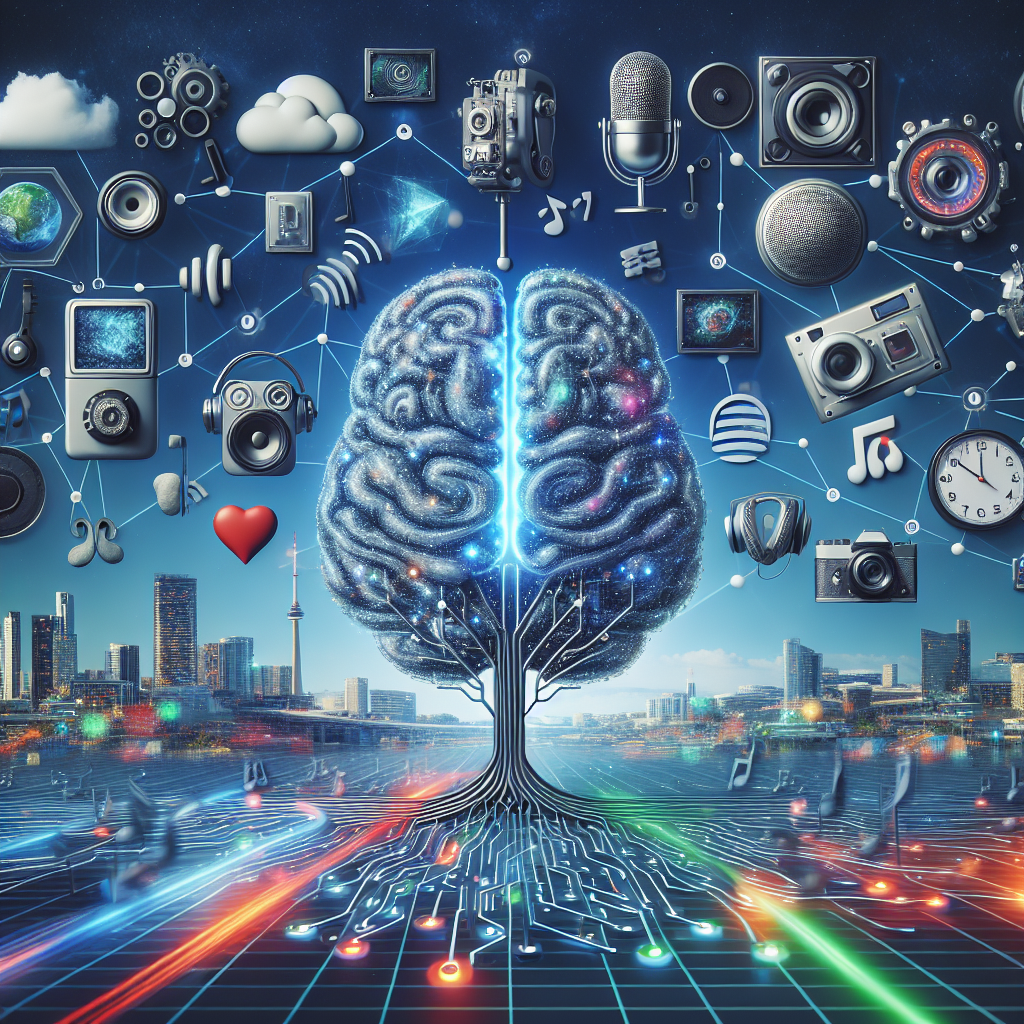Generative AI: Revolutionizing the Way We Create and Consume Media
Artificial Intelligence (AI) has been making significant advancements in recent years, and one of the most exciting applications of AI technology is in the field of generative AI. Generative AI refers to AI systems that can create new content, such as images, videos, music, and text, that is indistinguishable from content created by humans. This technology has the potential to revolutionize the way we create and consume media, opening up new possibilities for creativity and innovation.
Generative AI works by using neural networks, a type of machine learning algorithm that is inspired by the structure of the human brain. These neural networks are trained on large datasets of existing media, learning the patterns and styles that are common in that type of content. Once the neural network has been trained, it can generate new content by making educated guesses based on the patterns it has learned.
One of the most well-known applications of generative AI is in the field of image and video generation. Companies like OpenAI and NVIDIA have developed AI models that can create stunningly realistic images and videos that are almost indistinguishable from real photographs and footage. This technology has the potential to revolutionize industries like film and gaming, where realistic visuals are essential for creating immersive experiences.
Generative AI is also being used in the field of music generation. AI models like Google’s Magenta project can compose original music in a variety of genres and styles, opening up new possibilities for musicians and composers. This technology has the potential to democratize music creation, allowing anyone to create professional-quality music without needing years of training or experience.
In addition to visual and auditory media, generative AI is also being used to create text-based content. Companies like OpenAI have developed AI models that can generate realistic text, such as news articles, stories, and even code. This technology has the potential to revolutionize content creation, allowing writers and developers to generate high-quality content quickly and efficiently.
The impact of generative AI on the media industry is already being felt. Companies like Netflix and Spotify are using AI algorithms to recommend content to users based on their preferences, helping to personalize the user experience and increase engagement. In the future, we can expect to see more AI-generated content in the form of movies, music, and games, as well as more personalized and targeted advertising.
However, the rise of generative AI also raises important ethical and legal questions. For example, who owns the copyright to AI-generated content? Can AI-generated content be used for commercial purposes without the consent of the original creators? These are complex issues that will need to be addressed as generative AI technology continues to advance.
In conclusion, generative AI has the potential to revolutionize the way we create and consume media, opening up new possibilities for creativity and innovation. From realistic images and videos to original music and text, AI-generated content is already making an impact on industries like film, music, and publishing. As this technology continues to advance, we can expect to see even more exciting applications of generative AI in the future.
FAQs
Q: What are some examples of generative AI technology?
A: Some examples of generative AI technology include image and video generation models developed by companies like OpenAI and NVIDIA, music generation models like Google’s Magenta project, and text generation models developed by companies like OpenAI.
Q: How is generative AI different from other types of AI?
A: Generative AI is different from other types of AI, such as machine learning and deep learning, in that it is specifically designed to create new content that is indistinguishable from human-created content. Other types of AI are typically used for tasks like classification, prediction, and optimization.
Q: What are some potential applications of generative AI in the future?
A: Some potential applications of generative AI in the future include AI-generated movies and TV shows, personalized music playlists, and targeted advertising campaigns. Generative AI also has the potential to revolutionize industries like fashion, design, and art.
Q: What are some of the ethical and legal issues surrounding generative AI?
A: Some of the ethical and legal issues surrounding generative AI include questions about copyright ownership, consent, and attribution. As generative AI technology continues to advance, these issues will need to be addressed to ensure that creators are fairly compensated for their work.

